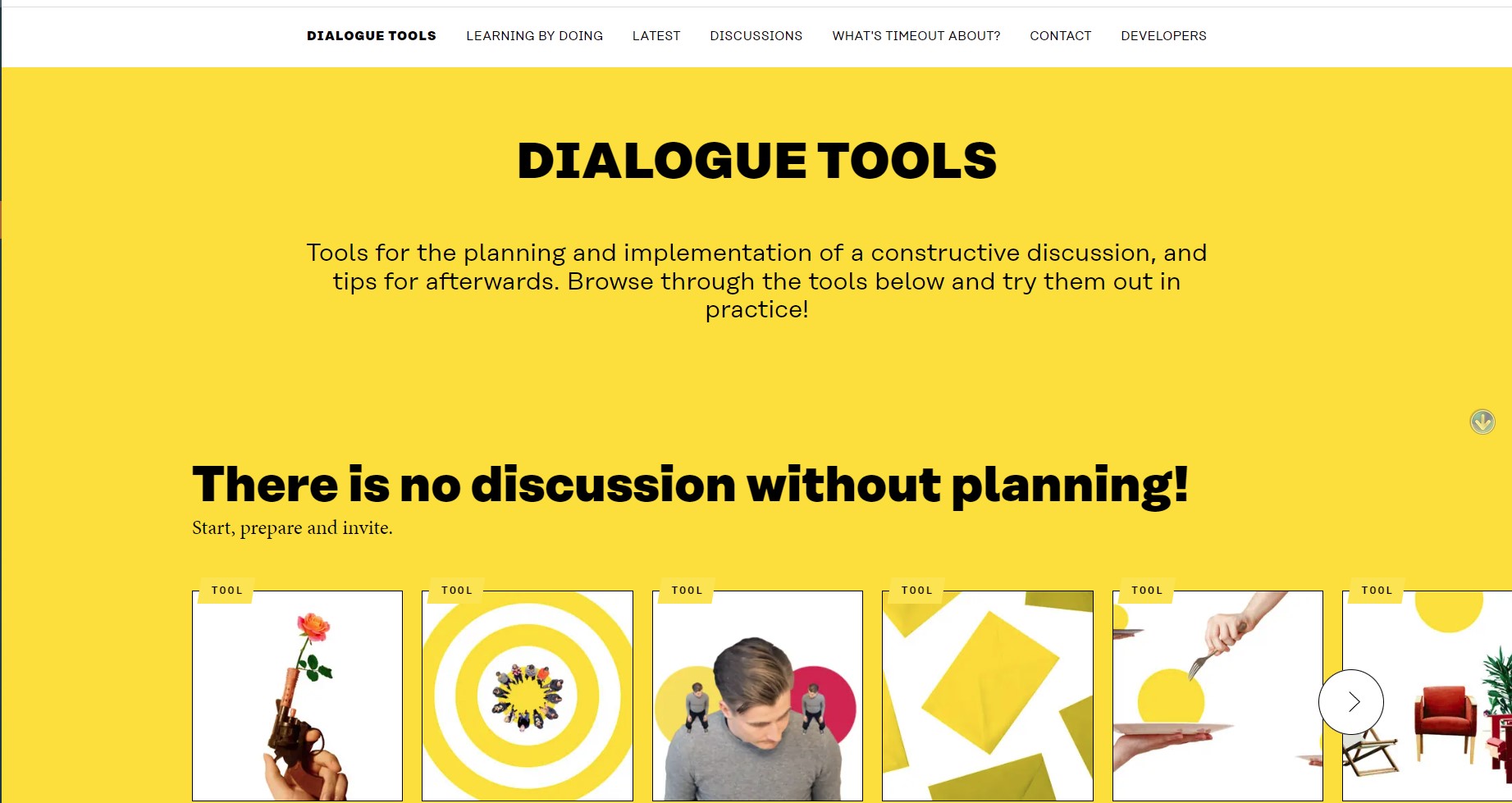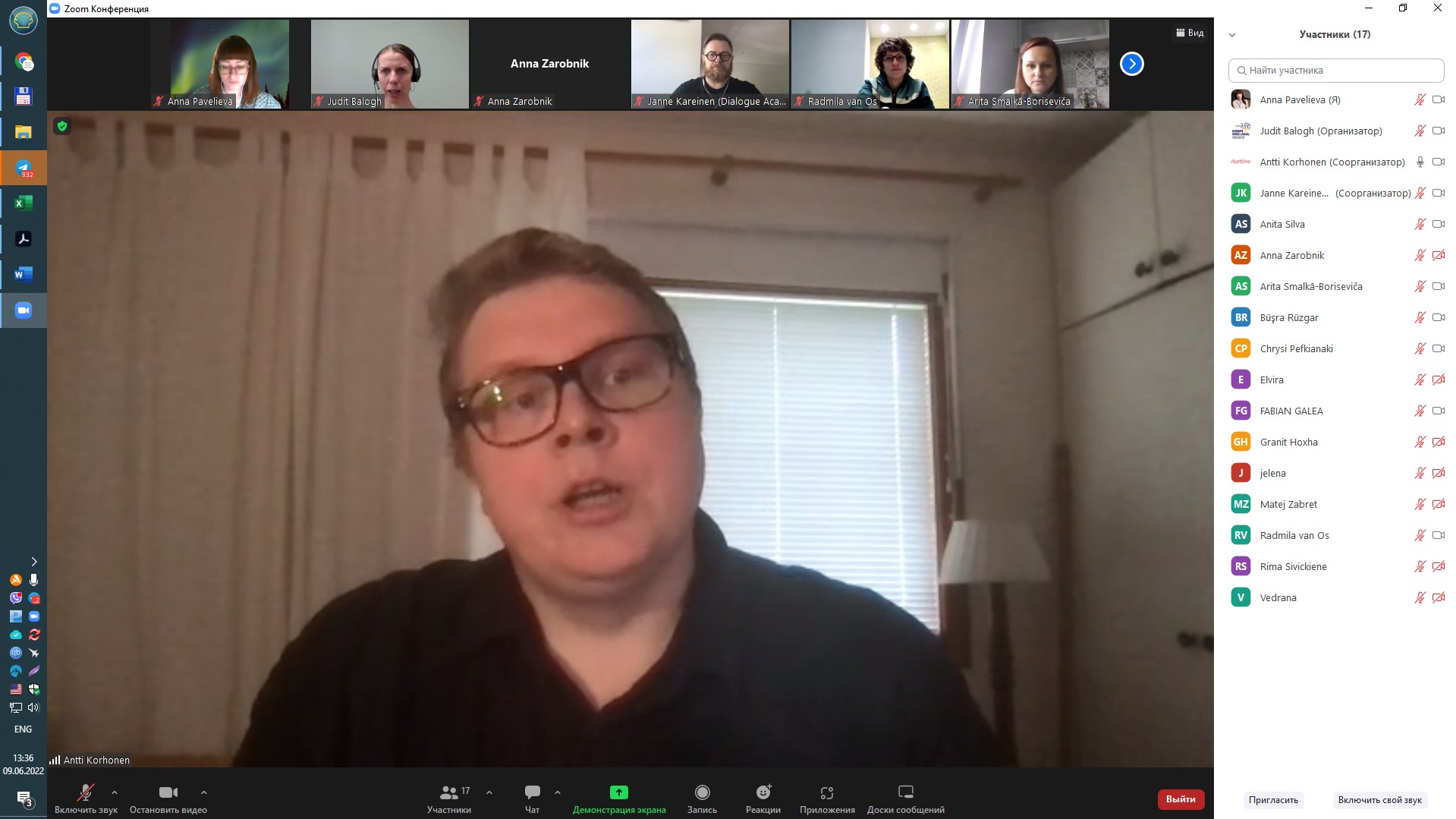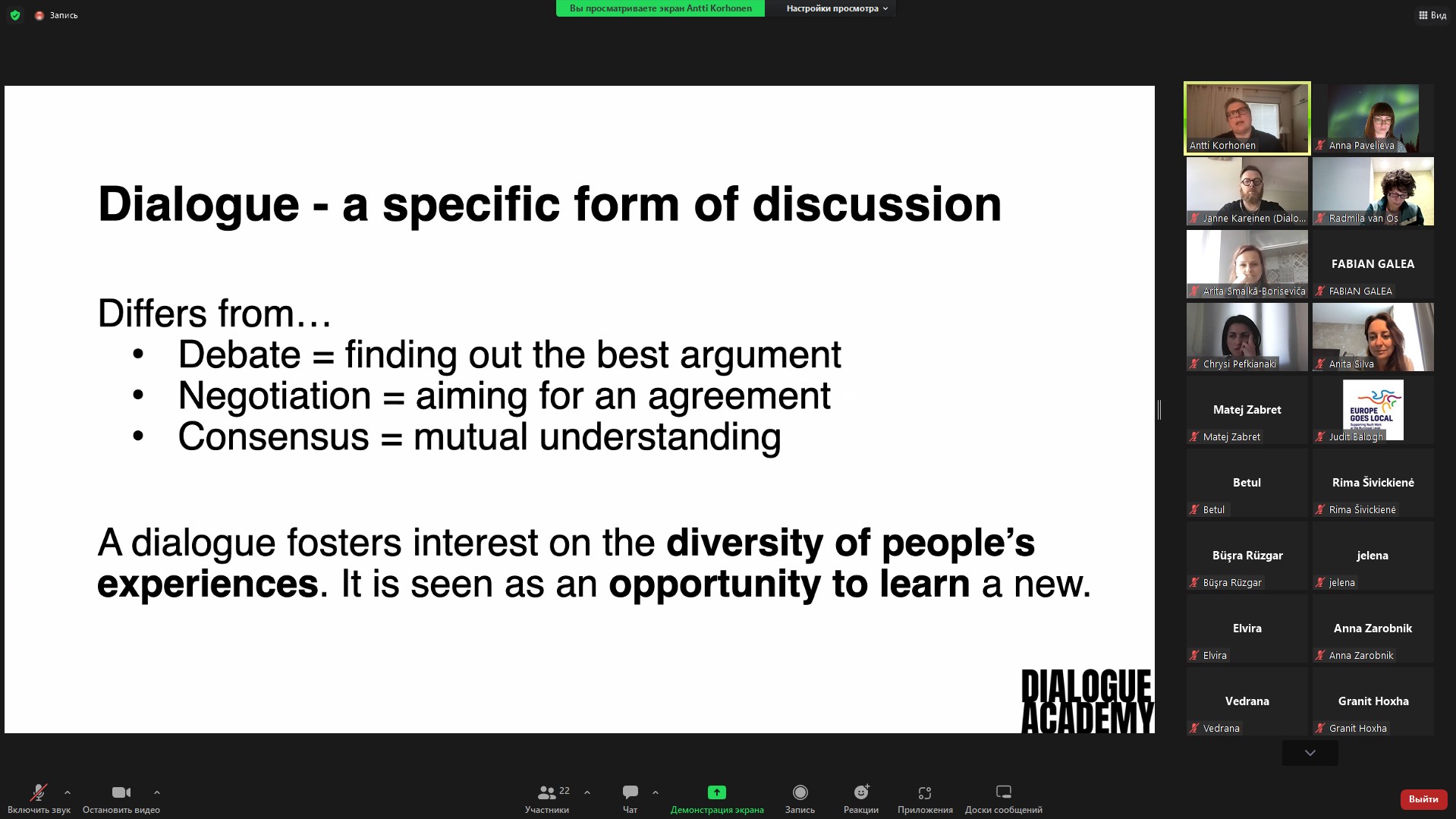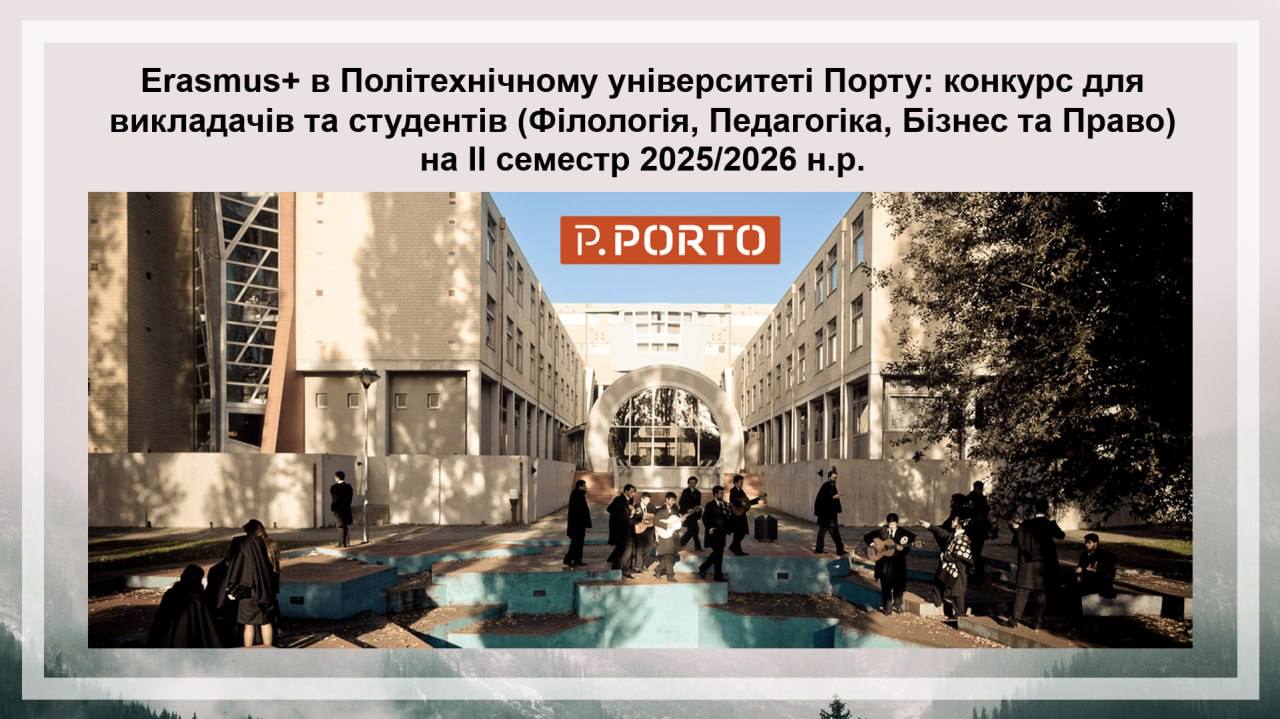On June 9, 2022, the online webinar "Europe Goes Local Webinar: Fostering Meaningful Communication (Dialogue) in Your Local Reality" organized by the Belgian National Agency JINT vzw was held as part of the Erasmus+ program. During a large-scale scientific event, 30 educators and youth workers from various European countries learned to promote meaningful communication (dialogue) in their own environment.
The National University "Yuri Kondratyuk Poltava Polytechnic" was represented by Candidate of Philological Sciences, Associate Professor of the Department of Germanic Philology and Translation, Anna Pavelieva. The scientist actively participated in the discussion of the most modern models of dialogue, exchanged practical experience and effective advice on establishing effective communication with colleagues from leading Ukrainian and European universities, and public organizations.

















During the webinar, participants discussed in detail the Finnish "Timeout-Dialogue" communication model. On the website, one can find many methods and tips for successfully building a dialogue and promoting effective dialogic communication, in particular, here you can download hint cards that will help to conduct a constructive dialogue in any conditions.
The participants of the event defined the concepts of "dialogue" and "dialogicity", discussed the difference between these concepts, identified four fundamental principles of conducting a successful dialogue:
- the goal of dialogue is to promote a better understanding of oneself, others, the topic of conversation, etc.;
- the core of dialogue is the meaning of something, which can be discovered through the exchange of experiences between individuals;
- mutual understanding and problem solving are not the goal of dialogue, but are part of the dialogue process;
- dialogue should promote equality and freedom of expression of individuals, as well as the free flow of discussion.
Trainers Judit Balogh, Antti Korhonen and Janne Kareinen explained the differences between dialogue and debate, negotiation and consensus as well as emphasized that dialogue always promotes the exchange of experiences between people, giving the opportunity to learn something new. After all, any dialogue is an individual, unique experience that takes place "here and now".
The webinar participants exchanged effective practical advice on how to properly conduct a dialogue, where to start effective communication, what verbal and non-verbal means to use. The lecturers emphasized that dialogue is suitable online and offline for seminars, meetings of all levels, discussions, public discussions and meetings in informal circumstances, but this form of communication is ineffective for quick problem solving, brainstorming, debates and evaluation processes.
The speakers stressed that the conditions of any dialogue should be security and trust, after which they spoke about 6 basic rules for conducting a constructive discussion:
- listen carefully to others, do not interrupt them and do not start off-topic discussions;
- "weave" your arguments into what other people have said and use daily colloquial vocabulary;
- tell others about your own experience;
- address other participants in the dialogue directly and ask them for their point of view;
- join discussions, but at the same time respect others and do not forget about privacy;
- try to defuse conflicts and identify issues/problems that have gone unnoticed.
The webinar participants also learned how to involve young people in discussions in their communities, use complex and painful topics for learning and development in local realities, discussed new ways of communication and listened about examples of dialogues that influence democratic processes. The attendees had a unique opportunity to apply the knowledge gained in practice, performing group tasks aimed at the development of dialogicity.
According to Anna Pavelieva, a scientist at the Faculty of Philology, Psychology and Pedagogy of the National University "Yuri Kondratyuk Poltava Polytechnic", dialogue is necessary in order to hear everyone in these difficult life circumstances, to listen and learn from each other: "Only through dialogue one can better understand local issues, learn to combat polarization and support democratic processes. The art of effective dialogue is especially important for educators and youth workers, because correct verbal communication helps to achieve the set goals faster when working with youth. In the future plans – to share the acquired experience and mastered practical knowledge with colleagues and students."
Previously, Polytechnic scientist took part in a webinar dedicated to mobility projects during the war, a philology student became a participant in a project for Erasmus+ youth leaders in Greece, a scientist took part in a presentation of opportunities for Ukrainian youth in Ukraine and EU countries, a Polytechnic student became a participant in the Erasmus+ youth exchange "Eco-Friendly Youth" in Georgia, a philology student took part in an Erasmus+ training dedicated to mental health in war conditions, and a Polytechnic scientist attended the "Spring School of a Young Scientist 2.0".
Media Center of
National University “Yuri Kondratyuk Poltava Polytechnic”



